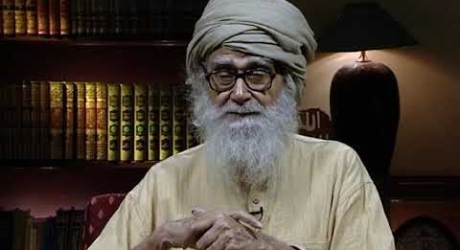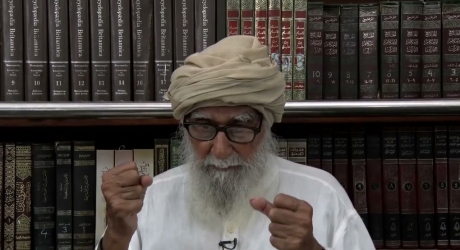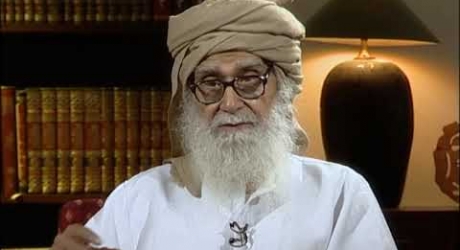Human beings have a strange feature not shared by any other creature. Moreover, that is the unlimited desire to search. Every human being has this desire within him, from birth itself, which makes him constantly search for something unknown that he has not yet found. No success or achievement whatsoever manages to satisfy this desire. Nor does any failure destroy it. Philosophers have termed this as the desire for the ideal. The fact is that this desire is the desire for God. The Creator is the ideal that a human being is anxious to find. The thing that everyone is actually in search of is God, the Creator of every soul. Based on his or her innate nature, every person remains continuously in search of God. This inner emotion drives people to the things of the world. They imagine that perhaps these things are the answer to their search. However, when they obtain these things and experience them at close range, they realise they are not what they were looking for.
Introduction
Several books have been authored about the ‘Roads’ that lead to various ends. While the secular writings have focused on Road to London, Road to Rome etc, the Muslims have touched themes like Road to Medina, Road to
If I take my own example, I can say that I was a seeker of God from the very beginning. My mother often remembered a dream that she saw a few hours before my birth. She dreamt that she gave birth to a healthy baby. Soon after, an elephant appeared and took the baby away into the forest and my mother could barely manage to say, “He was such a healthy boy and the elephant took him away!” This dream signifies my upbringing which took place in a remote village, devoid of material surroundings and shaped my inclination towards nature and spirituality.
As a young child, I was much pampered by my father who was the central point of my life. However, in the winter of December 1929, my father passed away. This incident left me shocked and silent. My focus now shifted from man to God. This shift was opposite to the philosophy of humanism which promotes the view of ‘transfer of seat from God to man.’ In my early childhood therefore, I became a seeker.
When General Pervez Musharraf visited
On one of my visits to the Jama Masjid at Azamgarh, I stood in the mosque’s courtyard, underneath a papaya tree. This tree was shedding its flowers. As I stood there watching, I became so overwhelmed that my emotions gave way to tears. I cried out saying, “O! God when will You come? Till when shall I wait for You?”
My journey of God-realisation
As I advanced on the Road to God-realisation, I consciously started experiencing the proof of God in everything. In the process, I discovered that the best way to find God was to do dua (prayer).
I consciously discovered that the biggest proof of God was neither in science nor philosophy but within man himself. According to a tradition,
God created man on himself, discover yourself and you shall discover God (Al-Bukhari)
I once read a striking observation,
The strangest thing I discovered was that whatever Ms. T eats, turns into Ms. T
This referred to the process of conversion of non-me (food item) into me (part of my being). Even though the food item is a different entity, once I eat it, it merges and becomes a part of my body. Similarly, despite its material aspect, everything I saw started giving me spiritual food. The French philosopher Rene Descartes said, “I think, therefore I am” but I learnt from my experiences that,
“I am therefore, God is.”
I can therefore say with conviction that my experiences through dua have given me grounds to believe in God, which are far more superior than those proffered by science or philosophy.
Importance of Dua
Explaining the importance of praying to God, a verse in the Quran says,
When My servants ask you about Me, say that I am near. I respond to the call of one who
calls, whenever he calls to Me: let them, then, respond to Me, and believe in Me (2:186)
When man calls out to God, his call is responded to. Being the ultimate expression of God's greatness and power and of man's helplessness, a sincere prayer is the most precious of all deeds in the eyes of God. It is through prayer that I have been able to decipher aspects such as were hitherto unknown. According to a tradition, Ibn Taymiyyah, used to pray each time he found it difficult to understand a verse of the Quran. The words of his prayer were
O God, the one who taught Abraham, teach me!
The expression of this prayer touched me so much that it became my guiding light, which helped me sail through situations where I otherwise groped for answers.
The Miracle of a Thought-particle
Science clarifies that of his own will man cannot increase as much as an iota of physical particles that exist around him in this universe. The number of particles remain as they are and can only be increased if the Creator so wills. Similarly, man is incapable of increasing the thought particles even by as little as an iota. It is implied therefore that the ‘thought-particles’ and the new ideas are also inspired by God! However, the process of receiving this inspiration is a gradual one.
In order to understand the process of receiving this inspiration, let us consider this verse from the Quran
Do not those who deny the truth see that the heavens and the earth were joined together
and that We then split them asunder? (21:30)
This verse contains the word “see” in reference to the occurrence of the Big Bang explosion, which led to the formation of the universe. Incidentally this “seeing” happened after billions of years when the scientists discovered the proof of occurrence of this event. Observing the background ripples in the universe, a scientist cried out,
This is like seeing the handwriting of God.
In my life, I made a discovery after forty years of having known a tradition. It is as follows
My ummah will stay on goodness till it hastens in breaking the fast (iftaar) (Al-Bukhari)
No one till date could explain how hastening to break the fast is linked to the restoration of goodness within the community. This question had been in my mind ever since I first read it but only recently, a thought flashed my mind and I immediately understood the ‘why’. It was the phrase “shift of emphasis” that made answered my question. I realized that at a time when emphasis shifts from spirit to the form, people become unnecessarily meticulous about the form. For example, they do not break the fast on time and delay it by five, ten minutes. This shift of emphasis from spirit to form happens when a community has degenerated. The Hadith therefore indicates that people will remain good so long as they remain concerned about spirit; when they divert their concern to the form, they shall succumb to degeneration. The emergence of such thought particles is an extraordinary phenomenon. In the context of the Prophets, this process is termed as ‘revelation’ and in the context of non-Prophets it may be called as ‘inspiration.’
Examples of ‘inspiration-led realisation’ from my life
Be it Aristotle, Marx or Gandhi, all big minds in history have remained obsessed with the idea of an ideal state or society. I on the contrary discovered a uniquely different idea that ideal cannot be achieved in this world. The Creator of man created him according to a special plan. Created as an eternal creature, man’s life was divided into two stages — the pre-death period or the limited life in this world and the post death period or the eternal life after death. The limited period before death is meant to be a test for man, while the eternal period after his death will be the period for his reward or punishment, based on his performance in the test in this life. The real aim of creation is to select those who are fit to inhabit the world of
Chapter five of the Quran relates the story of two brothers, Cain and Abel. They were the sons of Adam, the first man to settle on earth. For some reason a controversy arose between the two brothers. After a heated exchange, Cain killed Abel. This was the first instance of misuse of freedom that occurred in human history, which continues till date. Therefore so long as man has freedom coupled with the right to misuse the freedom, ideal cannot be achieved in this world. Therefore, aiming for an ideal state or society is an impractical goal. But unfortunately people could not realize this wisdom. It is the unawareness of this concept that has made the Muslims a violent community. They want ideal without knowing that ideal is not possible in this world. It is my discovery that idealism is not possible in this world only status quoism is.
Similarly, secular thinkers divided the world into two – have’s and have-nots. This is a wrong division. The right perspective is that God has created every man with unlimited talent. Man is either in the category of ‘actual have’ or ‘potential have’. For example, Dr. Abdul Kalam was born in a penurious family; so, in his childhood he was in the category of potential haves. He worked very hard and reached the category of actual haves.
It is the emergence of such thought particles that unveils previously unknown facts to my mind. These are items about which I have never read before, yet they strike my mind. This in itself is a proof of the existence of God. I therefore live in conviction every minute.
In the context of the Muslims
The Muslim literature published in the last few centuries has been completely devoid of the concept of Dawah. The biggest disadvantage of this was that the later-day Muslims no longer remained cognizant of their relationship with other communities. The idea that Muslims are dayee and the rest of the communities, their madu was no longer understood by anyone. The idea which had fostered positive thinking amongst the Muslims for hundreds of years now became alien to them. While the realization of the dayee-madu relationship promoted well wishing and compassion for the madu, lack of it made the Muslims negative towards the ‘madu’ so much so that they started hating everyone and held them as rivals. It was inspiration that aroused this ‘thought-particle’ in my mind and led me to discover the true essence of the relationship between a dayee and madu.
Another discovery I made was related to Taleef-e-Qalb. It is a pre-dawah process and can take any form depending upon the audience and may not necessarily resemble the earlier ways. An example of Taleef-e-qalb can be a speech that I delivered at the ashram of a guru. Referring to Taleef-e-qalb, a verse in the Quran reads,
Say, ‘People of the Book, let us come to a word common to us (3:64)
This verse was revealed in the context of doing dawah with the Christians by finding a common ground between them and the Muslims. I adopted the same pattern of finding a common ground during my speech at the ashram. Taleef-e-qalb marks the beginning of the process of dawah with the non-Muslims. But, for thousand years, Muslims had made it a redundant concept.
Conclusion
The Road to God marks an ongoing and continuous journey. I traversed this Road alone and got no one as a guide on my journey. The following couplet illustratively sums it up
Gulon mein bu na mili, Sang mein sharar na mila
Mera mazaak judaa tha ki hamsafar na mila
As I reflect back, I see my whole life as being a journey towards God-realisation. I discover new facts every moment, which grow my faith (Imaan) and never let it stagnate. If this journey is halted, it spells a downturn and man puts his imaan at the risk of degeneration. Let me illustrate with an example. Hamd (praising God) is a very difficult task. It is my discovery that in order to say true Alhmad-ulillah, man must first ignore and forget every problem or negative thought that surrounds him and become hundred percent positive. In other words, he will have to kill any negative feeling within so that he can be truly thankful to God for His mercies.
If one sincerely deliberates, it is easy to realize that the miracles and mercy of God are endless. Be it the birth of a child or the combining of two gases to form water – these are extraordinary miracles that man takes for granted and consequently does not perceive them as reminders of God.
To conclude, I would like to reiterate that the process of discovery is a gradual one and requires sincerity and devotion. In order to initiate this process man must begin to live in God’s remembrance and despite facing obstructions and distractions, he should desist from falling prey and remain steadfast on the righteous track.
May God guide us!











